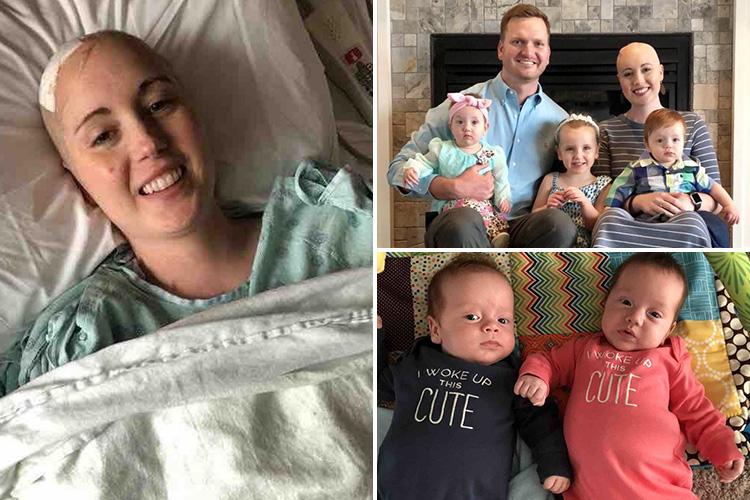AN NHS Trust have apologised after an aspiring model died of cervical cancer just four months after a doctor said her hormones were to blame.
Porsche McGregor-Sims passed away in hospital just a day after being admitted with the disease – in what a coroner said was one of the saddest cases she has ever dealt with.


And now an NHS Trust have apologised for her death, after the doctor mistook her symptoms for a hormone problem.
The 27-year-old was told by a consultant her problems could be linked to the side effects of stopping taking birth control or irritable bowel syndrome.
Dr Peter Schlesinger, an agency locum doctor specialising in gynaecology, insisted her symptoms – including bleeding after sex – did not lead him to think she had a serious illness.
Dr Claire Burton, a consultant gynaecologist at Portsmouth Hospitals, said Dr Schlesinger should have physically examined Miss McGregor-Sims, and apologised for the care she received at the trust.
READ MORE ON HEALTH
Dr Burton said: “If [Dr Scheslinger] had examined her [in late January] then she would have been referred for a colposcopy more quickly, where diagnosis would have been made.
“I would like to express our condolences to Porsche’s family and friends, and to apologise for the care she had here.”
Concluding her inquest, Area Coroner Rosamund Rhodes-Kemp today said the young woman’s death in 2019 was one of the most ‘shocking and traumatic’ cases she had ever dealt with.
She added that as a result of what she had heard she would be writing a ‘letter of concern’ to the trust responsible for her care.
Mrs Rhodes-Kemp said: “We see hundreds and hundreds of cases every year – and I have done about 6,000 inquests – but this one is particularly sad.”
On the 24th January she was seen by a consultant locum gynaecologist who didn’t examine her nor refer her for a colposcopy.
“She was instead advised on [symptoms of] IBS.
“It is not clear that a referral in January would have altered the tragic outcome, but an earlier diagnosis would have allowed her and her family more time to prepare themselves.
“I think an appropriate conclusion, in this case, is natural causes.
“In no way am I trying to belittle the suffering of the family, but there is no evidence that an earlier diagnosis would have altered the outcome.”
Miss McGregor-Sims – a graduate who was engaged to be married – was only seen face-to-face by a doctor after months of complaints of abdominal pain and vaginal bleeding because experts thought her shortness of breath may have been Covid.
The inquest, which concluded today in Winchester, Hants, heard a simple physical examination could have led to an earlier diagnosis.
Porsche’s mother, Fiona Hawke, said even a ‘few more weeks’ would have made an ‘indescribable difference’ to the family’s ability to come to terms with her daughter’s illness.
Miss McGregor-Sims, from Portsmouth, Hants, underwent her first smear test in 2017, which uncovered no cancerous cells but did find ‘abnormal cells’ – though no further action was taken.
Two years later she began complaining of abdominal pain and vaginal bleeding and in December 2019 her GP referred her to see a consultant.
She wasn’t seen until late January by Dr Schlesinger at Queen Alexandra Hospital in Portsmouth, Hants.
Dr Schlesinger, 71, told an earlier hearing he thought her symptoms were ‘hormonal’ after she ceased her birth control injections around a year prior to her death.
The father-of-four, from Frome, Somerset, said he didn’t think a vaginal examination was ‘needed’, and Miss McGregor-Sims later complained he ‘hadn’t listened’ to her.
Miss McGregor-Sims underwent further examinations in early April – when cervical cancer was first suspected – and was referred to the oncology department on April 9.
She was later admitted to Queen Alexandra Hospital in Portsmouth, Hants, with ‘severely’ short breath caused by the cancer, where she died a day later on April 14 2020.
McGregor-Sims’ mother Fiona Hawke, fiancé Mark Chappel, and twin brother Deucalion questioned Dr Schlesinger’s practices during the inquest, asking why a physical examination hadn’t taken place.
Fiona Hawke told the inquest no one, including her daughter, had expected never to see her again when she went was admitted to hospital.
Ms Hawke said: “She was scared and alone. She knew it wasn’t good, she knew it was going to be a fight and she knew she probably was not going to survive it in the long run.
“But she did not expect to die two days after being diagnosed. She expected to be listened to and helped but that is not what happened.
“From December on, the time taken to diagnose and assess her cost us what very little time we might have had to adjust to the fact we were going to lose her, and to be there with her and for her and in any way prepare for the massive loss we were about to experience.
“Had the examination been done in January we would have still have had some time with her.
“When she went into hospital there was not one single person in this family who thought she was not coming out again.
“A few weeks more would have made an indescribable difference to that experience for all of us – including Porsche.”
The inquest heard Portsmouth Hospitals NHS Trust had reviewed protocols following Porsche’s case, which had led to the trust deciding not to employ any locum doctors in the future and instead hire more in-house consultants.
All patients seen by Dr Schlesinger have now been seen again by another doctor, the inquest heard.
Mrs Rhodes-Kemp added she would be writing a ‘letter of concern’ to the Portsmouth Hospitals, which could lead to a report for prevention of future deaths.
She said: “Importantly, we heard that the way the family found out about the severity of Porsche’s cancer was shocking and traumatic.”








